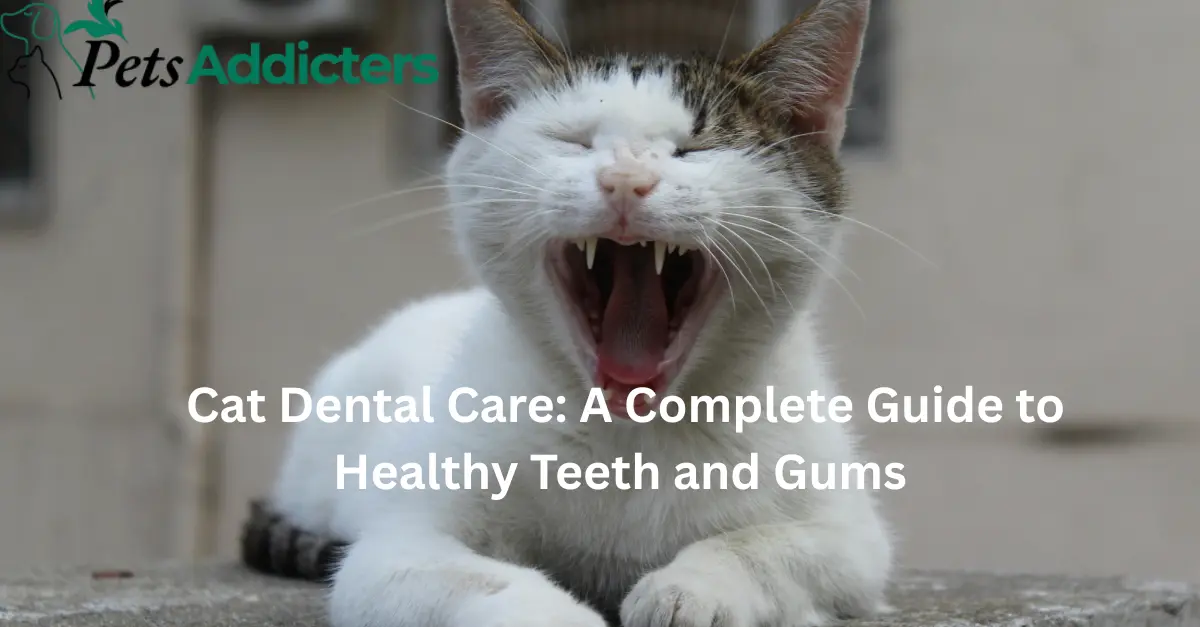When most pet parents think about cat health, they focus on food, grooming, or vaccinations. But one area often overlooked is cat dental care. Just like humans, cats need regular oral hygiene to stay healthy. Ignoring your cat’s teeth can lead to serious problems, including gum disease, infections, and even damage to internal organs. The good news is, with the right care, you can keep your cat’s teeth clean and their smile shining for years to come.
Why Feline Dental Care Matters
Dental disease is not only one of the most frequent health problems among cats but also potentially life-threatening. Before the age of three, over 70% of domesticated felines demonstrate evidence of dental illness in the form of gingivitis or tartar. Bad oral health isn’t only responsible for halitosis — it also causes discomfort, the loss of teeth, as well as infection traveling to the kidneys, the liver, as well as the heart.
The maintenance of the mouth of your cat is not just cosmetic but furthermore part of their health.
Common Dental Issue Indications in Felines
- Recognizing the warning signs enables you to identify the problem early. Be on the lookout for:
- Bad breath or halitosis (strong, terrible
- More drooling than usual
- Red or inflamed gums
- Brown or yellow tartar deposit
- Pawing at the mouth
- Having trouble eating or chewing on the side
- Weight loss due to eating less
Any of the foregoing symptoms signal the need for an examination at the vet.
How Can I Care for My Cat’s Teeth at Home
Caring for the teeth of your cat doesn’t have to appear problematic when started gently. Here’s how you can do it in just some simple steps to follow:
- Brush Your Cat’s Teeth
The best way for dental health is brushing. Brush using the cat-specific toothbrush and cat-specific toothpaste (never human toothpaste — it’s deadly for cats). Begin doing short periods of time and reward the cat after. Work toward brushing several times per week.
- Dental Treats and Chews
Reducing tartar and plaque, dog dental treats are special. Promote oral health without losing palatability using VOHC-approved treats.
- Offer Dental Toys
These chew toys help peel off the plaque naturally. Moreover, they provide the cat with mental stimulation as well. That’s an added advantage.
- Try Water Additives
Certain water additives also include enzymes for battling bacteria and breaking down plaque. Using them is as simple as mixing them in the cat’s drinking water.
- Offer an appropriiate Dental-F
Some dry foods help aid dental health through tartar control. It should also be consulted about using them for their cat.
Specialized Dental Care
Even with the best care at home, the majority of cats require professional dental cleaning over the course of their lifetime. A veterinarian will thoroughly examine the cat, scrape off the tartar, and polish the teeth under anesthesia. It’s best for the cat’s teeth to maintain regular checkups twice 6–12 months per year.
- Preventing Dental Disease in Domesticated Cats
- Prevention is less costly than treatment. What follows are several important suggestions:
- Begin dental care early, optimally when your cat is a kitten.
- Introduce brushing into the repertoire.
- Plan for regular visits annually at the vet.
- Offer dental chews, toys, and normal diet.
Conclusion
Cat oral health is not only about fresh breath for the cat it’s about the prevention of distress, disease, and life-threatening health issues. Regular brushing, nutritious treat consumption, and professional teeth cleanings for the teeth will safeguard the teeth of the cat and provide them with healthier, happier living. Your cat will not thank you in words but they will thank you in purrs, playfulness, and years of robust health.
Why is cat dental care important?
Cat dental care is essential because poor oral hygiene can lead to gum disease, tooth loss, and even serious health problems like heart or kidney disease. Regular care keeps your cat healthy and pain-free.
How often should I brush my cat’s teeth?
Ideally, you should brush your cat’s teeth daily. If that’s not possible, aim for at least 3–4 times per week to prevent plaque buildup.
What toothpaste can I use for my cat?
Always use cat-specific toothpaste. Human toothpaste contains fluoride and other ingredients that are toxic to cats. Cat toothpaste comes in flavors like poultry or seafood that cats usually enjoy.
Are dental treats effective for cats?
Yes, dental treats help reduce tartar and plaque while giving your cat something tasty to chew on. Look for VOHC-approved treats for the best results.

